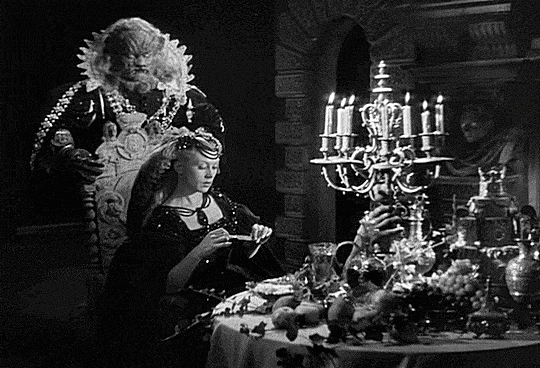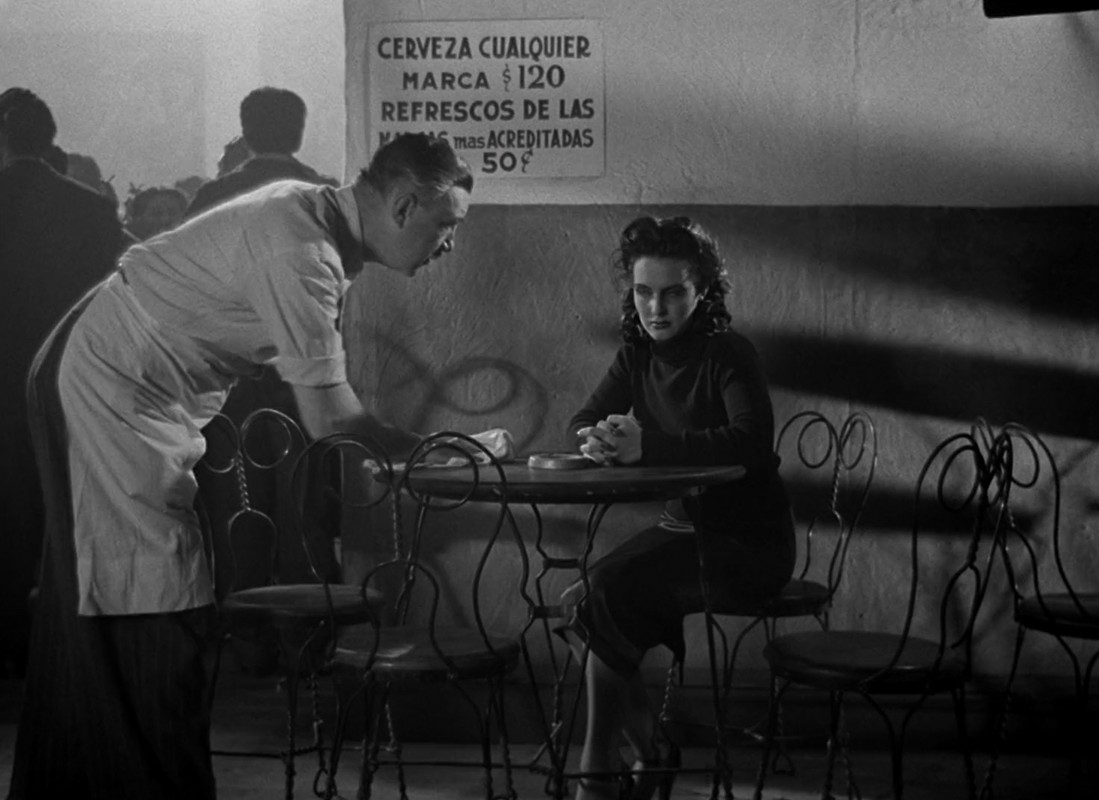– Nice day, isn't it?
– Yes, isn't it!
– It's swell. It's perfect.Lonesome (Pál Fejős, 1928)
Nov
20
A Beautiful Day

Our lovebirds holding out on the Human Roulette, one of the many dizzying Steeplechase attractions of Coney Island. DP: Gilbert Warrenton.
A beautiful day for Beautiful Day (USA??).
Two hopelessly lonely hearts meet each other at Coney Island, spending the most wonderful day in each other's company. Pál Fejős' joyful Lonesome was made just when motion pictures became talkies, and new and more modern novelties were expected by the audience. Fejős delivers, with sound and musical inserts, and the occasional – almost shocking – burst of colour.
With light touches of Murnau's groundbreaking Sunrise: A Song of Two Humans (1927) and Jean Vigo's more experimental À propos de Nice (1930), Lonesome depicts the exuberance of youth with an optimism soon to be lost to the vices of history.
melodrama
Maciste all'inferno [Maciste in Hell] (Guido Brignone, 1925)
Oct
17
sinners

A demon eating a poor sinner. Numerous scenes are directly taken from Gustave Doré's illustrations of Dante's Divina Commedia, chapter Inferno. DPs: Ubaldo Arata, Massimo Terzano & Segundo de Chomón.
– Does he crawl on four legs? What does he eat and drink? – I've given him water to drink on occasion. He would never eat me.La Belle et la Bête [Beauty and the Beast] (Jean Cocteau + René Clément, 1946)
Aug
15
a cornucopia of wonder

La Belle (Josette Day) at a fancy table stacked with good foods and nice wines. She's cleaning her fingernails with the silverware while a chagrined Bête (Jean Marais) looks on. As magical as the story are the production and set design by Christian Bérard, Lucien Carré, and René Moulaert. They breathed a soul into almost everything, including the candelabras. DP: Henri Alekan.
Salón México (Emilio Fernández, 1949)
Aug
13
$120 cerveza

Mercedes (Marga López) sitting at a small round table at the salón. A waiter just came over to take her order. In the other room, meticulously dressed couples dance to live music. DP: Gabriel Figueroa.
“He's still alive.”Muerte de un ciclista [Death of a Cyclist / Age of Infidelity] (Juan Antonio Bardem, 1955)
Jun
28
National Insurance Awareness Day

Juan (Alberto Closas) looking out at María José (Lucia Bosè) and the car after the crash. The cyclist is never shown. The scene echoes Beckett's Waiting for Godot. DP: Alfredo Fraile.
A car crash on National Insurance Awareness Day (USA)
A couple rushing home at night hit a cyclist. Despite knowing that the man's still alive, they opt to leave the site of the #crash and never mention it again. News reports about the death of the cyclist cause a rupture; because of the couple's #class differences – she a wealthy socialite, he a former falange soldier turned university professor – because they're lovers, and because no one can know about their whereabouts on the night of the accident.
Striking about Bardem's Muerte de un ciclista is its outsiderness in the Spanish film landscape. By adopting the visual language of both Italian #Neorealismo and Hollywood #melodrama, Bardem elegantly circumvents #Francoist censorship.
“I don't care about your barley. Or, your vines! Or, your new terra!”Stromboli (Terra di Dio) [Stromboli] (Roberto Rossellini, 1950)
Jun
27
tuna (fresh)

Karen (Ingrid Bergman) looking miserable at a small kitchen table. A huge tuna covers most of its surface. DP: Otello Martelli.
Posted while deciding on my film dinner. Eventually I went with Tourneur's La Main du Diable (1943).
– Karen
“Here we are, poor wretches, in this hell, Condemned to tyranny.” Stromboli (Terra di Dio) [Stromboli] (Roberto Rossellini, 1950)
Jun
27
Decide To Be Married Day

Antonio (Mario Vitale) and Karen (Ingrid Bergman). DP: Otello Martelli.
Karen – “Karin” in the opening credits – is a displaced Lithuanian woman in an Italy-based refugee camp. She meets an Italian military man bivouacking on the other side of the barbed wire and decides to say yes when he proposes. When the newly-weds leave for home, she finds to her dismay that he's a poor Sicilian fisherman from #Stromboli; a magnificent active volcanic island home to a small Catholic parish. Again displaced, Karen is confronted with herself more than with the others that share her faith.
– Antonio
Roberto #Rossellini's Stromboli (Terra di Dio) is a peculiar melodramatic Italian/American hybrid that seems to strongly dismiss the Italian aspect. The significance of Struògnuli – the Sicilian name for the volcano – and the people's faith connected to the volatile mountain and the surrounding sea is presented as primitive superstition. That the Sicilian dialogue – song, prayer, life – remains untranslated and the locals' broken English is used as comic relief adds insult to injury.
Otello Martelli's photography excels when he manages to tear himself away from Bergman's face. Only when we're confronted with the magnificence of Struògnuli, the gifts from the ocean, and the greatness of nature we'll be able to understand why the island is man's home.
Mutya ng Pasig [Muse of Pasig] (Richard Abelardo, 1950)
May
2
National Foster Care Day

A young woman, drowned, held up by several helpless looking people. DP: Ray Lacap.
In this #supernatural Filipino melodrama, it being a Filipino melodrama, the town's muse tragically drowns, taking her newborn child with her. The orphaned baby floats down the river then is picked up by an older, childless couple who gladly raise her as their own. The child has a strange attachment to the #Pasig river where at night, a mysterious spellbinding voice sings the #kundiman [traditional love song] Mutya ng Pasig.
While Mutya ng Pasig is a lovely, somewhat predictable mystery by Richard Abelardo, it's well worth your time on a slowly meandering, hot summer night.